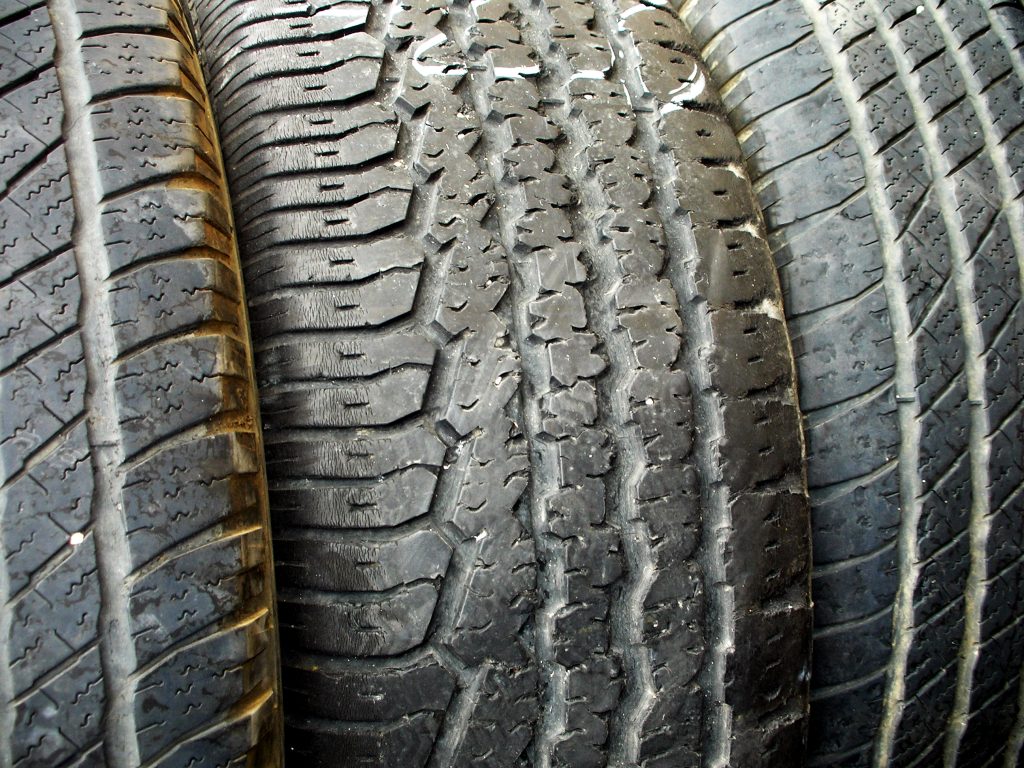 Caveat Emptor. This is a common consumer warning, more easily recognized in English as “Buyer Beware.” But what if a defective product wasn’t actually bought, but given away for free? Monroe resident Jason Falcon faced this issue. In April 2012, Falcon called several local tire stores looking for a new tire for his pickup truck. He spoke to the manager of Ink’s Firestone (“Firestone”) of Monroe, Emmett “Ink” Cobb, who said he had a tire meeting Falcon’s specifications in stock. However, when Falcon arrived at Firestone to purchase the tire, Cobb said he did not have a new tire in the correct size available. Instead, Cobb invited Falcon to select a used tire from one of the piles outside the store for free. Falcon declined Cobb’s offer to mount the tire for $8.00 because Falcon, a mechanic at a local car dealership, planned to do it himself.
Caveat Emptor. This is a common consumer warning, more easily recognized in English as “Buyer Beware.” But what if a defective product wasn’t actually bought, but given away for free? Monroe resident Jason Falcon faced this issue. In April 2012, Falcon called several local tire stores looking for a new tire for his pickup truck. He spoke to the manager of Ink’s Firestone (“Firestone”) of Monroe, Emmett “Ink” Cobb, who said he had a tire meeting Falcon’s specifications in stock. However, when Falcon arrived at Firestone to purchase the tire, Cobb said he did not have a new tire in the correct size available. Instead, Cobb invited Falcon to select a used tire from one of the piles outside the store for free. Falcon declined Cobb’s offer to mount the tire for $8.00 because Falcon, a mechanic at a local car dealership, planned to do it himself.
A few days after he installed the used tire, Falcon and his fiancee were returning from a trip to Baton Rouge when the tread came off the replacement tire. The tread separation caused Falcon to lose control of his truck, ultimately steering the vehicle into the median where it flipped over, landing upright. Falcon wasn’t injured, but his fiancee sustained minor injuries. The truck, damaged significantly, was a total loss
After the accident, Falcon filed a lawsuit against Firestone claiming that the defective tire caused the crash. The trial court rejected Falcon’s claim, reasoning that the tire could not have been defective because Falcon, as a professional mechanic, would have recognized the defective condition when installing the tire on his truck. Falcon appealed this judgment, claiming the trial court made three errors: first, in deciding that the tire was not defective; second, in holding that Firestone was not negligent; and third, in finding that there was no sale of the tire in question from Firestone to Falcon.
 Louisiana Personal Injury Lawyer Blog
Louisiana Personal Injury Lawyer Blog


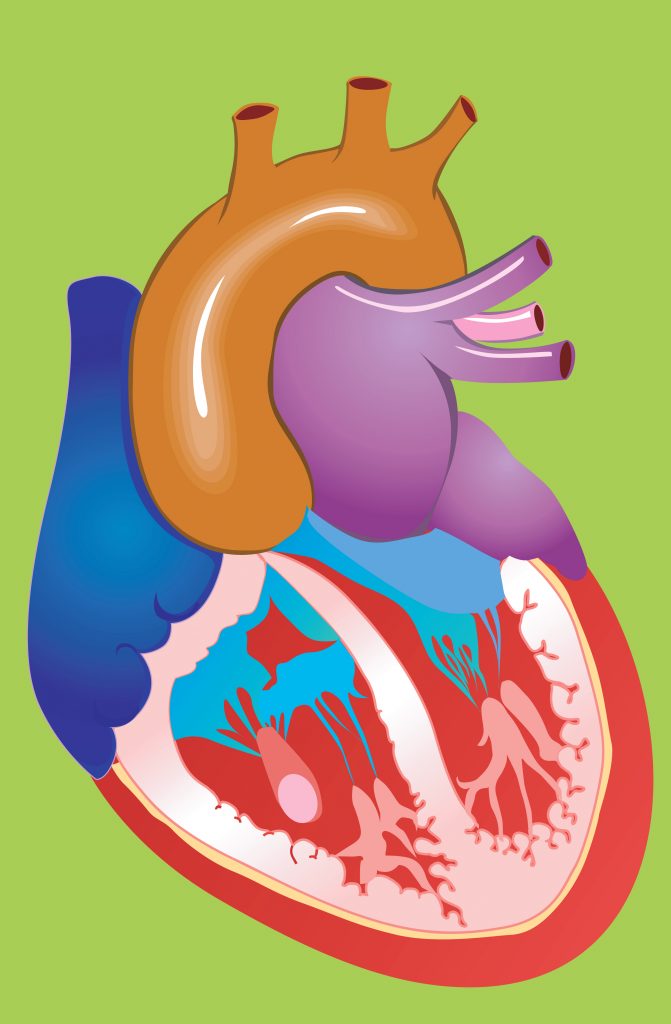 When you suspect a doctor has provided substandard care for a medical issue, it is important to immediately retain the services of a qualified medical malpractice attorney. Quick action is important because time is not on your side when considering a lawsuit. Here is but one example of how waiting can be detrimental to the plaintiff’s case.
When you suspect a doctor has provided substandard care for a medical issue, it is important to immediately retain the services of a qualified medical malpractice attorney. Quick action is important because time is not on your side when considering a lawsuit. Here is but one example of how waiting can be detrimental to the plaintiff’s case.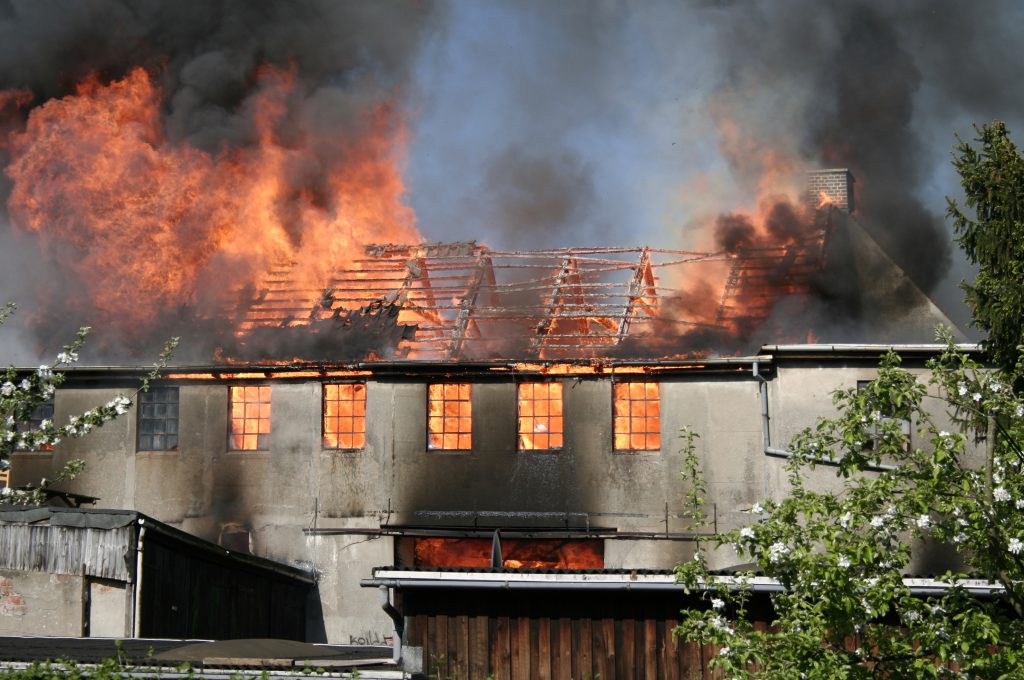 When a loved one dies from an avoidable accident, a family’s options for recovery include a wrongful death lawsuit. For this claim to succeed, a family often needs to prove that someone had a duty to protect the decedent but acted negligently in causing this death. For wrongful death lawsuits related to building fires, potentially negligent parties include those involved in preventing these disasters: building inspectors and fire marshals.
When a loved one dies from an avoidable accident, a family’s options for recovery include a wrongful death lawsuit. For this claim to succeed, a family often needs to prove that someone had a duty to protect the decedent but acted negligently in causing this death. For wrongful death lawsuits related to building fires, potentially negligent parties include those involved in preventing these disasters: building inspectors and fire marshals.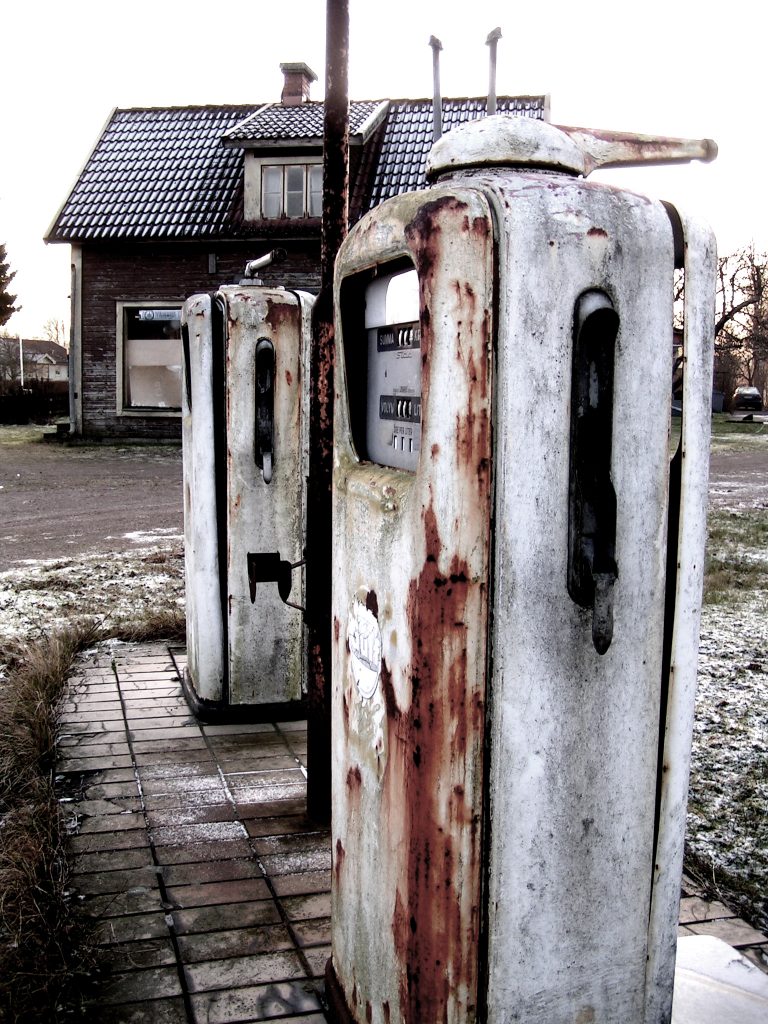 Under Louisiana law, store owners can be held liable for damages if a customer is injured by an unsafe condition while visiting the premises. In November, 2011, Henry Moore, Jr. visited the Murphy Oil gas station and convenience store in Hammond, Louisiana. After making his purchases at the store’s counter, Moore started back toward his car when his foot came in contact with a black plastic pallet supporting a display of bottled water. Moore tripped and stumbled, but didn’t fall to the ground. He then reported the incident to manager on duty. After the incident, when Moore began to suffer back pain, Murphy Oil agreed to pay for Moore’s medical treatment. When Murphy Oil stopped paying for Moore’s treatment after approximately four months, Moore filed a lawsuit for damages, alleging that the water display created an unreasonably dangerous condition.
Under Louisiana law, store owners can be held liable for damages if a customer is injured by an unsafe condition while visiting the premises. In November, 2011, Henry Moore, Jr. visited the Murphy Oil gas station and convenience store in Hammond, Louisiana. After making his purchases at the store’s counter, Moore started back toward his car when his foot came in contact with a black plastic pallet supporting a display of bottled water. Moore tripped and stumbled, but didn’t fall to the ground. He then reported the incident to manager on duty. After the incident, when Moore began to suffer back pain, Murphy Oil agreed to pay for Moore’s medical treatment. When Murphy Oil stopped paying for Moore’s treatment after approximately four months, Moore filed a lawsuit for damages, alleging that the water display created an unreasonably dangerous condition. 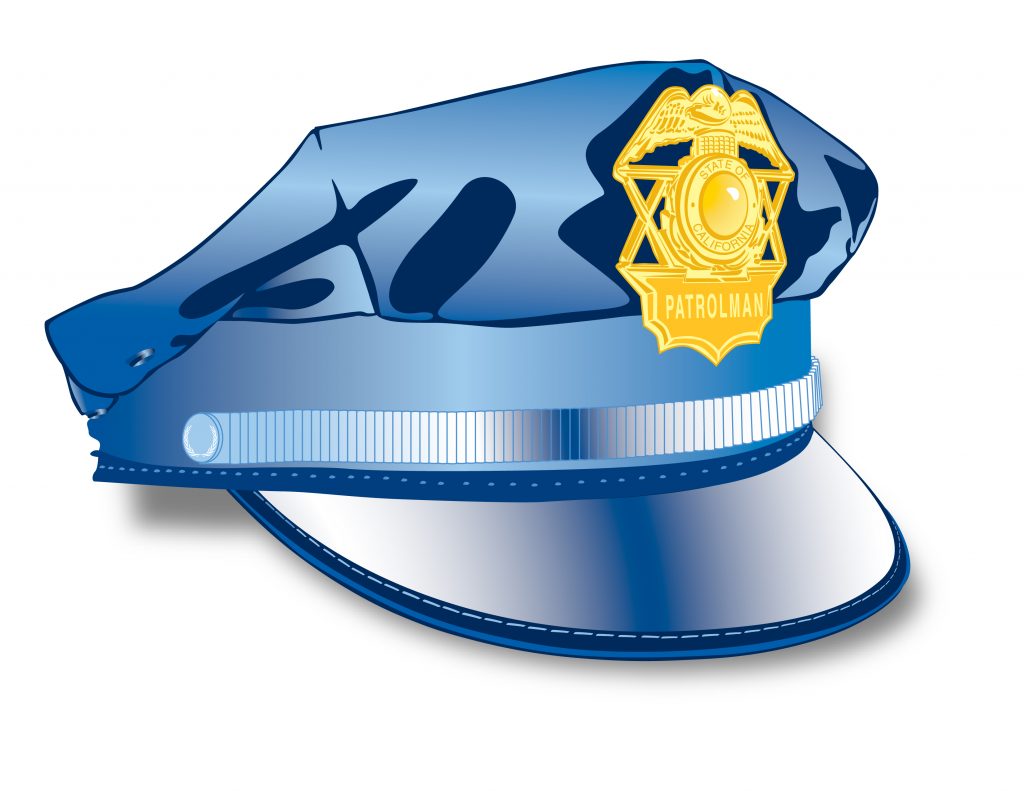
 In Louisiana, determining the allocation of fault is an important part of lawsuits because it directly impacts the damages you can be awarded. If you are found 40% at fault, then you will only be able to collect damages for 60% of total damages.
In Louisiana, determining the allocation of fault is an important part of lawsuits because it directly impacts the damages you can be awarded. If you are found 40% at fault, then you will only be able to collect damages for 60% of total damages.  Imagine going to get a massage and leaving with an injury that forever altered your life. After such an injury, it is difficult to put a dollar value on these injuries. The following lawsuit discusses the types of damages that can be sought by a Plaintiff who believes that they have been injured by a massage gone wrong.
Imagine going to get a massage and leaving with an injury that forever altered your life. After such an injury, it is difficult to put a dollar value on these injuries. The following lawsuit discusses the types of damages that can be sought by a Plaintiff who believes that they have been injured by a massage gone wrong.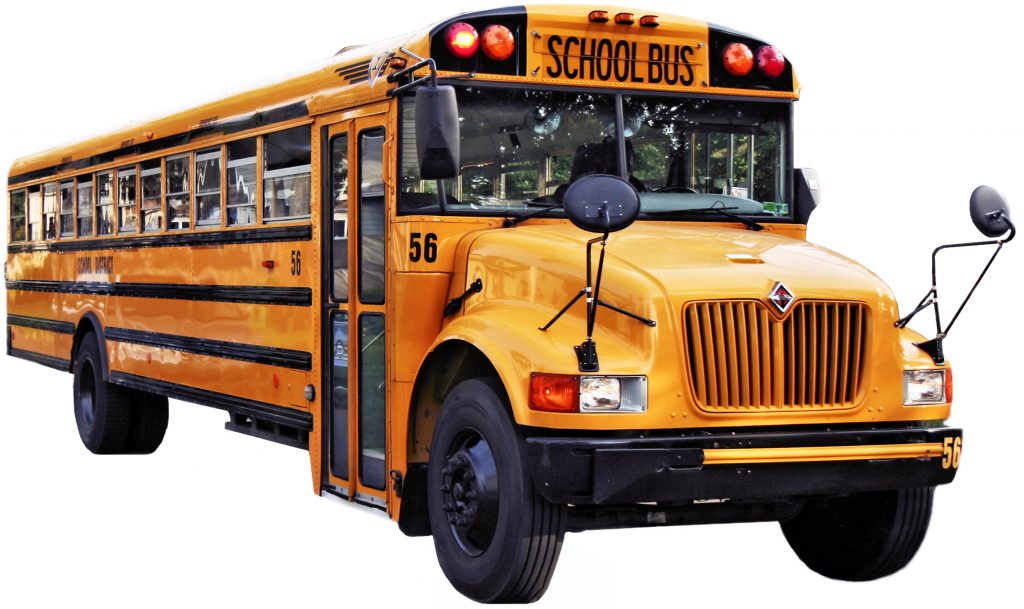 Entrusting a child to the care of a school bus requires a certain amount of faith that they will arrive at the correct destination, safely. For any parent or guardian this evokes a certain amount of anxiety. For a parent with a special needs child, this act of faith likely garners even greater angst. Unfortunately, one Lafourche Parish parent’s fears materialized when her special needs son was struck by a car at his bus stop one afternoon. Whether the Lafourche Parish School Board (“LPSB”) could be held responsible became an issue for a jury in this recent lawsuit.
Entrusting a child to the care of a school bus requires a certain amount of faith that they will arrive at the correct destination, safely. For any parent or guardian this evokes a certain amount of anxiety. For a parent with a special needs child, this act of faith likely garners even greater angst. Unfortunately, one Lafourche Parish parent’s fears materialized when her special needs son was struck by a car at his bus stop one afternoon. Whether the Lafourche Parish School Board (“LPSB”) could be held responsible became an issue for a jury in this recent lawsuit.  For a negligence lawsuit to have any chance of survival, an essential element is to show the plaintiff had damages. Often these damages are obvious physical injuries. Sometimes however, damages claimed are for emotional distress. Due to its intangible nature, emotional distress can be extremely difficult to prove and a lawsuit for such damages can be equally difficult to maintain. In a recent case out of the Parish of Lafayette, a Louisiana man failed to prove all the necessary elements to sustain his emotional distress lawsuit despite the lawsuit centering on a helicopter crash.
For a negligence lawsuit to have any chance of survival, an essential element is to show the plaintiff had damages. Often these damages are obvious physical injuries. Sometimes however, damages claimed are for emotional distress. Due to its intangible nature, emotional distress can be extremely difficult to prove and a lawsuit for such damages can be equally difficult to maintain. In a recent case out of the Parish of Lafayette, a Louisiana man failed to prove all the necessary elements to sustain his emotional distress lawsuit despite the lawsuit centering on a helicopter crash. 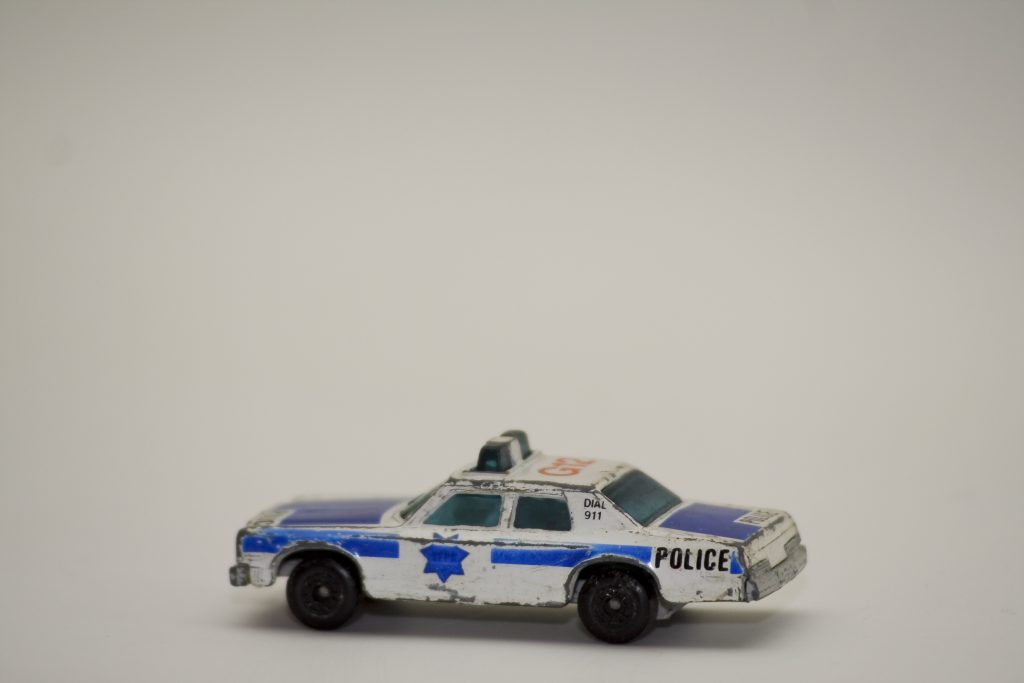 Car accidents can have long-lasting effects that are not immediately apparent at the time of the accident. Victims may initially report that they do not suffer from pain, only to be struck with it days, weeks, or even months later. This pain can have debilitating effects on one’s current and future career, as well as on one’s mental well-being and relationships with others. If a victim is not careful with the doctor he or she chooses or the actions he or she takes, a jury may dispute the damages (money) a victim may be entitled to. If a personal injury case makes it to court, it is best to reach the ideal verdict at the trial court level, rather than at the appeals level. The following case illustrate this.
Car accidents can have long-lasting effects that are not immediately apparent at the time of the accident. Victims may initially report that they do not suffer from pain, only to be struck with it days, weeks, or even months later. This pain can have debilitating effects on one’s current and future career, as well as on one’s mental well-being and relationships with others. If a victim is not careful with the doctor he or she chooses or the actions he or she takes, a jury may dispute the damages (money) a victim may be entitled to. If a personal injury case makes it to court, it is best to reach the ideal verdict at the trial court level, rather than at the appeals level. The following case illustrate this.